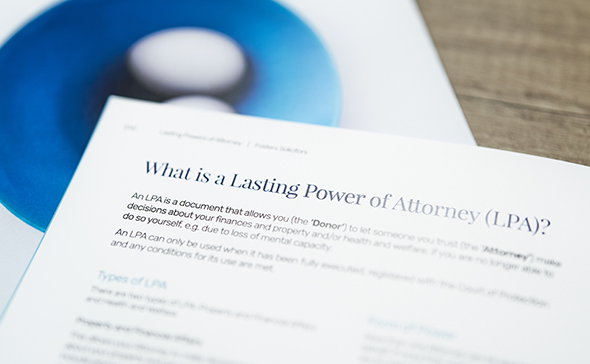Case of fraudulent Lasting Power of Attorney

A recent investigation has been carried out after a complete stranger was granted genuine Lasting Power of Attorney over a woman’s financial affairs, using fake names and signatures on an official form.
The victim of the fraud discovered the stranger had then used the Lasting Power of Attorney (LPA) to try to sell her home without her knowledge. This was possible because the Office of the Public Guardian, the government department that approves Lasting Power of Attorney applications, is not legally obliged to check LPAs for forgeries or carry out basic identity checks when applications are made.
The investigator dug deep into how the fraud happened. They discovered a woman called ‘Julie’ had pretended to be the victim’s sister to take over her financial affairs. Julie was granted Lasting Power of Attorney by the Office of the Public Guardian, and then tried to sell the victim’s home. A quick-thinking firm of Manchester-based solicitors ultimately saved the victim from losing her home to a total stranger.
A Lasting Power of Attorney is a positive and recommended part of later life planning, normally set up in case a time comes when you cannot manage your own affairs. It can be used when people become too sick or frail and cannot face dealing with their finances anymore. Through the LPA they legally grant someone, usually a close relative, friend or professional, such as their solicitor, the power to act in their best interests and make decisions on their behalf.
The Office of the Public Guardian says that in this instance, it investigated the victim’s case, removed the Lasting Power of Attorney from the register, and reported the matter to the police.
The Ministry of Justice, which oversees the Office of the Public Guardian, is now taking steps to reform the system to better protect people against cases of attempted fraud. This will include additional verification checks.
However, what this case does highlight is just how important it is to take your own steps to protect yourself, by legitimately making a Lasting Power of Attorney through a trained professional, such as a solicitor.
Commenting on the case, our Head of Wills, Trusts & Probate, Lisa Glynne said: “It is important to understand that currently the Office of the Public Guardian are not obliged to carry out any identity checks when an LPA is sent to them for registration.
“Whilst reforms with extra checks being put in place are welcome, we do not yet know when this will happen and until then the best way to protect your properties and money is by making and registering an LPA yourself, appointing a person or persons you know and trust to have control of your finances.
“We have a wealth of experience in advising and supporting people through the process of making an LPA to suit the individual needs of the person making it. Please do get in touch with us to see how we can help you.”
For more information about Lasting Power of Attorney, please visit our LPA services page, or contact our Wills, Trusts & Probate team directly on 01603 620508 or email.
This article was produced on the 29th March 2023 by our Wills, Trusts & Probate team for information purposes only and should not be construed or relied upon as specific legal advice.
